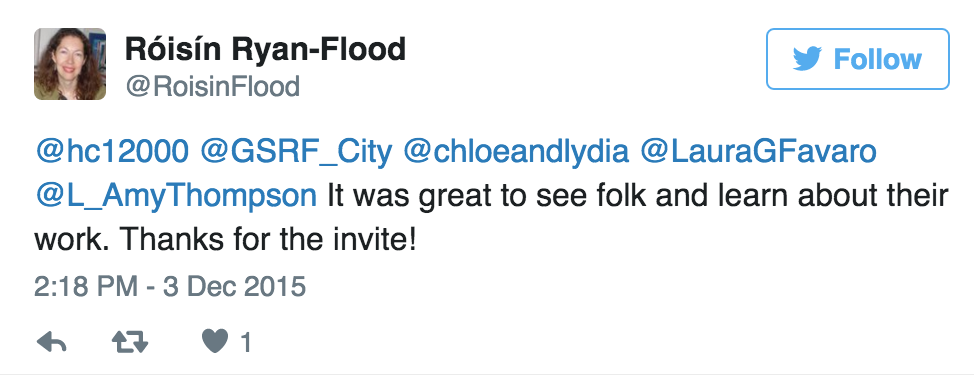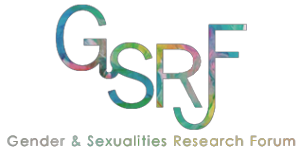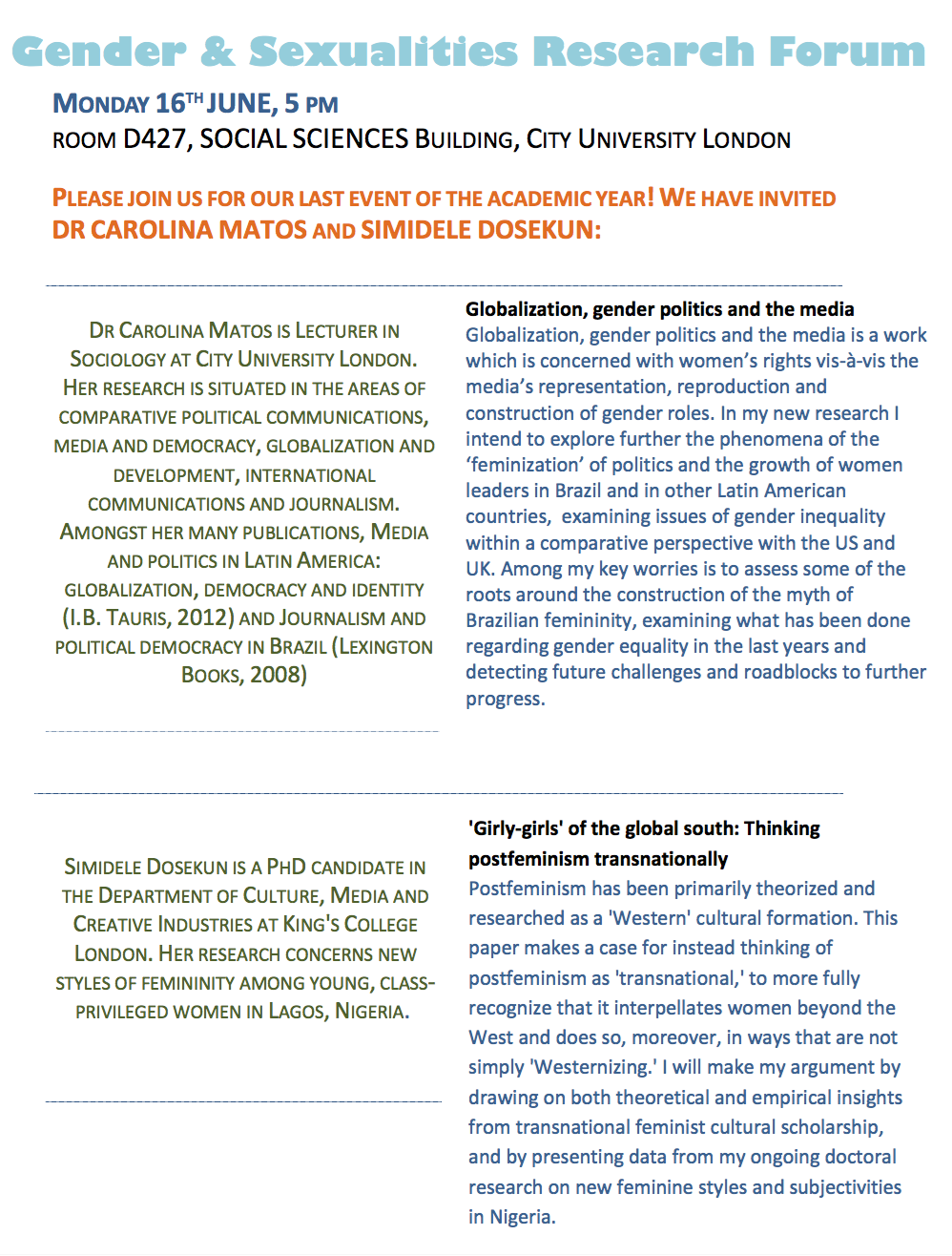On 23rd June 2016, GSRF teamed up with renowned feminist scholars to deliver a unique and timely roundtable event on Feminism and Neoliberalism. We sought to collectively explore some pressing and complex questions facing feminism today such as, ‘what is the relationship between feminism and neoliberalism?’ ‘Is feminism becoming neoliberalized?’ And, ‘how might feminism resist neoliberalism?’ Chaired by Dr Rachel Lara Cohen (City University), the seminar began with insights from Dr Jo Littler (City University) on key moments in the historical relationship between feminism and neoliberalism. Jo discussed how femininities have become increasingly individualised and shaped as entrepreneurial projects of self-management/empowerment (for example, through notions of the ‘Mumpreneur’) and how this is based on post-race/class/feminist neoliberal meritocracy. Inspiringly, the talk ends with an emphasis on the importance of mobilising campaigns and what progressive opportunities there might be at present.
Our second panellist, Dr Kalpana Wilson (LSE) talked about how feminist ideas of empowerment and agency have been transformed and used to facilitate and legitimise the intensification of women’s labour in the Global South. Kalpana brought to light the ways in which the ‘gender equality as smart economics’ approach can in fact extend oppressive gendered and racialized inequalities. Furthermore, she argued that as philanthropic capitalist organisations promote a particular kind of neoliberal, entrepreneurial feminism, this negates the role of the state in social provision.
Next, the conversation shifted to ‘Confidence Cult(ure)’ and how the commodification of character becomes a gendered technology of self. In discussing her recent work with Dr Shani Orgad, Professor Rosalind Gill (City University) explored exhortations of confidence in advertising and the work place. Rosalind argued that as women’s ‘lack of’ confidence/self-esteem is framed as their main, individualised obstacle – something in their own psyche – this ignores important structural inequalities and cultural forces.
Dr Sara Farris (Goldsmiths) discussed the convergence of certain strands of feminism with neoliberalism in continental Europe – particularly France, Italy and the Netherlands. In the form of emancipation campaigns, Sara explained how ‘white supremacist feminists’ attempt to teach racialized and migrant women – who are considered to be oppressed/in need of ‘special help’ – to become culturally integrated and therefore emancipated. Moreover, within neoliberal workfare logic, she argued that women and feminist organisations are increasingly encouraging migrant women to participate within (certain areas of) the labour market which has become a civic ‘duty’, with welfare as a ‘privilege’.
Our final speaker Dr Shani Orgad (LSE) provided examples from her current research on the lived experiences of educated professional women who have left paid employment and how their experiences relate to current/limited narratives/imaginaries of feminism. Shani revealed that despite an acute awareness of the structural inequalities that have shaped their life trajectories, her respondents ultimately perceived their decisions/choices to leave their jobs and the consequences of doing so as personal failures. Accordingly, Shani discussed possibilities for alternative versions to neoliberal feminism and for different imagined futures that resist individualisation and expose how it is the system that needs to change, not women.
Bringing the event to a close, the floor was opened up to our audience for questions which allowed for engaging discussions on diverse issues such as intergenerational feminism, neoliberalism in academia, ethical consumption, post-racism and the politics of anger. We would like to sincerely thank all five speakers, our chair and to the audience for helping to create a positive, stimulating and thought-provoking event! If you were unable to attend, not to worry, you can watch a recording here.
We need to change oppressive social structures, not change women to fit them – striking end to amazing papers at #neolibfem @GSRF_City
— Alice Guilluy (@romcomresearch) 23 June 2016
Anger as result of collective consciousness, neoliberalism foregrounds the individual – of course it doesn’t like it! #neolibfem
— Tori Cann (@_canndo) 23 June 2016



